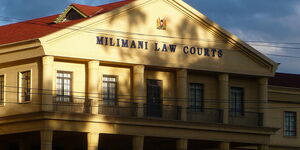A Mombasa Court has officially closed the inquest into the death of British national Harry Roy Veevers, ending an 11-year legal battle that failed to determine the cause of his death.
Senior Resident Magistrate David Odhiambo delivered the ruling, stating that the court could not establish how Veevers died due to the body's state of decomposition and conflicting forensic reports.
"Due to the level of decomposition and the conflicting reports by pathologists, the government chemist and other experts, the cause of death remains unknown, and as such nobody can be called to answer to any charge," Odhiambo ruled.
The case began in 2013 after Veevers' sons, who live in the UK, grew suspicious about their father.
Also Read: Sisters Accused of Poisoning Billionaire Father Over Ksh 1.4B React After Winning Case
Veever was interred in a Muslim cemetery within days of his death, without a post-mortem or police involvement.
The sons accused his long-time partner, Azra Parvin Din, and her daughters of rushing the burial to conceal the cause of death, alleging that he may have been poisoned for financial gain.
According to the Office of the Director of Public Prosecution(ODDP), the sons successfully petitioned the court for his exhumation later that year.
Over the last decade, the inquest saw 16 witnesses testify, including family members, investigators, and forensic experts from both Kenya and the UK.
Also Read: Two Sons of British Tycoon Harry Veevers Unwrapped His Body at a Morgue and Took Videos
Some forensic tests detected traces of a pesticide called cyhalothrin, while others found no trace of it. Experts noted that decomposition and potential contamination undermined the reliability of the findings.
The court also cited procedural lapses, such as poor chain-of-custody documentation for the evidence.
Odhiambo ordered that Veevers’ remains, which have been stored at the Coast General Teaching and Referral Hospital mortuary for over 11 years, be released to the family for reburial at a site of their choice, subject to the payment of mortuary fees.
The court stated that the inquest could only be reopened if new, conclusive evidence emerges.












